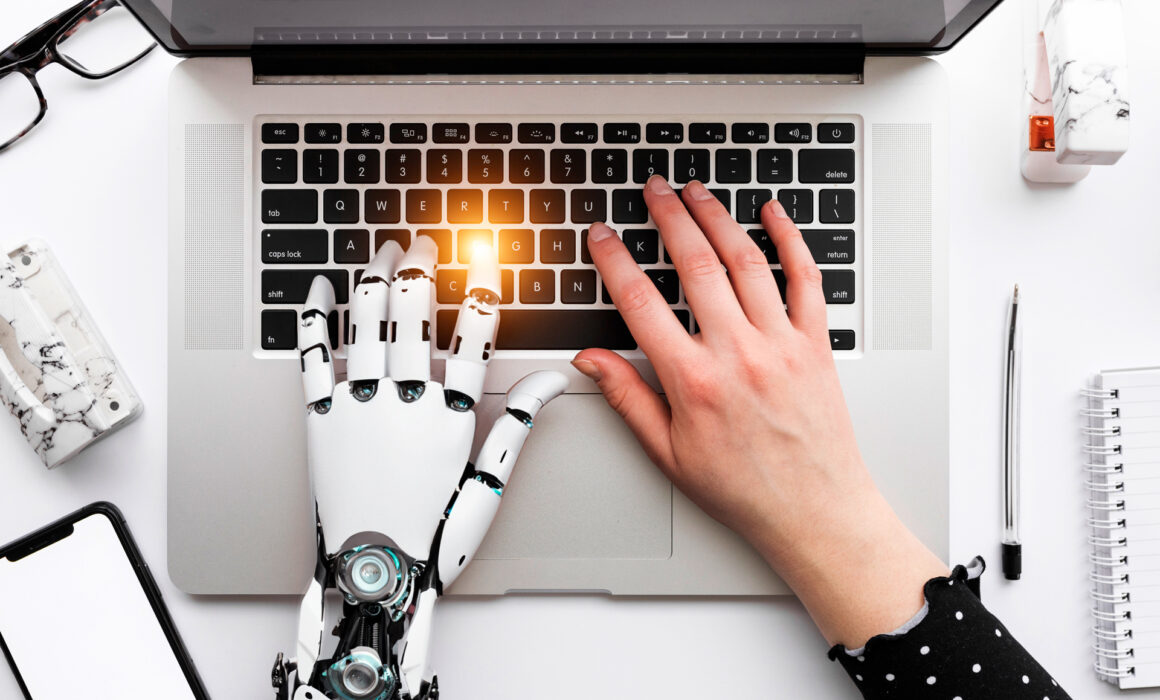The Future of AI in 2024: A Landscape of Possibilities
Artificial intelligence, or AI, has been an evolving field with groundbreaking advancements over the years. As we look ahead to 2024, AI evidently is poised to play an even more significant role in our lives. In this article, we will explore four key aspects of the future of AI in 2024 and how they are shaping our world: generative AI, AI for social good, AI and the workplace, and ethical considerations.
Generative AI: A Creative Revolution
The creative powerhouse of AI, generative AI, is set to have a transformative impact on the future of AI in 2024. Imagine AI systems that can compose eloquent prose, generate breathtaking artworks, craft melodious music, and create lifelike videos with a level of authenticity that challenges the boundary between human and machine.
- Applications in Education: AI’s proficiency in content generation will bring about an education revolution. In 2024, students of all ages will benefit from AI-powered, personalized learning experiences. These adaptive learning platforms will analyze a student’s progress and tailor content to suit their learning style, making education more engaging and effective.
- Entertainment Industry: The entertainment industry will forever change as AI finds its footing here. From crafting movie scripts to enhancing special effects and even generating catchy tunes, AI-driven tools will expedite content creation processes. This means more captivating movies, immersive games, and dynamic music in the future.
- Product Design: Product design will undergo a Renaissance with the aid of AI. Designers and engineers will rely on AI-generated concepts and prototypes. This will not only cut down on design cycles but also foster innovation by providing fresh, unconventional ideas.
The Future of AI: Addressing Global Challenges for Social Good
One of the most exciting prospects for AI in 2024 is its use in addressing some of the world’s most pressing issues. From climate change and poverty to healthcare and beyond, AI will be a potent force for positive change.
- Climate Change: AI’s predictive capabilities and data analysis tools will prove invaluable in the battle against climate change. Smart grids, energy-efficient technologies, and carbon capture innovations will all benefit from AI’s ability to process and interpret vast amounts of data.
- Poverty Alleviation: Personalized educational programs powered by AI will revolutionize poverty alleviation. Education is the key to breaking the cycle of poverty, and AI’s adaptability will ensure that every student gets a tailored learning experience, bridging the educational divide.
- Healthcare: The healthcare industry will see groundbreaking advancements thanks to AI. In 2024, AI will analyze patient data to develop personalized treatment plans. It will revolutionize drug discovery, leading to more effective treatments and even cures for various diseases.
The Future of AI and the Workplace: Transformation and Innovation
The workplace of 2024 will be a dynamic space, with AI playing a pivotal role in transforming not just how we work but also what we work on.
- Automation: AI will eliminate mundane, repetitive tasks, allowing employees to focus on more creative, value-added activities. This translates to increased efficiency and job satisfaction, as people can engage in work that truly matters.
- New Job Roles: Emerging job roles will be fueled by AI, providing individuals with unique career opportunities. AI trainers, explainability experts, and AI ethicists will ensure the responsible development and deployment of AI technologies.
- Tools for Productivity: Productivity and collaboration tools powered by AI will become essential in the workplace. Virtual assistants, data analysis, and decision support systems will empower employees to excel in their roles, fostering a more productive and efficient working environment.
Ethical Considerations: Ensuring Responsible AI
As AI’s presence grows, so does the importance of addressing ethical concerns. Responsible AI use is pivotal to gaining public trust and ensuring that AI benefits everyone.
- Bias in AI Systems: Bias in AI is a concern that needs to be urgently addressed. Developers will prioritize fairness, transparency, and accountability, ensuring that AI systems do not discriminate against any group or individual.
- Prevention of Malicious Use: The malicious use of AI is a real threat, which is why AI security systems will be developed to detect and prevent AI-based attacks. This will safeguard sensitive information and critical infrastructure from potential threats.
- Transparency and Accountability: Transparency and accountability will be central to AI development and use. Regulations and guidelines will be put in place to hold AI developers and users accountable for the consequences of their AI technologies, ensuring that AI is used responsibly.
The world of AI in 2024 is loaded with potential. These breakthroughs are focused on generative AI, AI for social good, AI’s impact on the workplace, and ethical considerations. As these changes occur, it is critical to recognize that AI is not a far-off concept; it is now transforming our lives. No matter how you feel about AI, staying informed and ethical is paramount to ensuring that technology continues to be a positive force in the world. In this ever-changing industry, AI is more than simply a tool; it is a revolutionary force with the ability to improve our world in numerous ways.
Recommended Reads: The Future of Digital Marketing in 2024: Embracing evolution (betterflylb.com)























Trackback: clindamicina pomada
Trackback: cialis generic online johannesburg
Trackback: cheap generic sildenafil citrate
Trackback: generic sildenafil 100mg
Trackback: cialis tadalafil tablets
Trackback: sulfamethoxazole trimethoprim tablets birth control interaction
Trackback: tamoxifen profile
Trackback: furosemide ckd
Trackback: vomiting with rybelsus
Trackback: duloxetine hot flashes
Trackback: spiraldynamics
Trackback: Spiral Dynamics
Trackback: how long after taking bactrim can i drink alcohol
Trackback: bactrim dose for uti 3 days
Trackback: vxi.su
Trackback: antibiotics amoxicillin
Trackback: gabapentin and flexeril
Trackback: depakene vs depakote
Trackback: diltiazem 240mg
Trackback: allopurinol and colchicine
Trackback: para que sirve amitriptyline 10 mg
Trackback: aripiprazole 20 mg tablet
Trackback: celecoxib nursing implications
Trackback: actos tolerados
Trackback: remeron effexor
Trackback: low dose abilify for depression
Trackback: protonix and alcohol
Trackback: levitra 10 mg
Trackback: rx advantage pharmacy
Trackback: tadalafil and galie
Trackback: generic viagra sildenafil 100mg
Trackback: vardenafil warnings
Trackback: flagyl used for
Trackback: lisinopril blood pressure
Trackback: how long does amoxicillin take to work for tooth infection